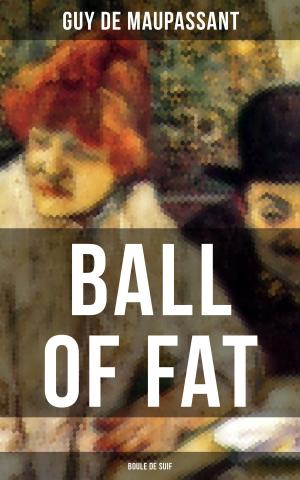| Author: | William Somerset | ISBN: | 9781301894567 |
| Publisher: | William Somerset | Publication: | October 8, 2012 |
| Imprint: | Smashwords Edition | Language: | English |
| Author: | William Somerset |
| ISBN: | 9781301894567 |
| Publisher: | William Somerset |
| Publication: | October 8, 2012 |
| Imprint: | Smashwords Edition |
| Language: | English |
The archaeological excavation in Ribchester's Pootlegate, on the site of the former church of St Grenden the Less, a long femur’s throw from the city's cathedral, was now well and truly into its third season. Three core workers, the erudite Ambrose Gillespie, his line manager Inkpen, and Mordant, a sort of tenured dogsbody with an accumulated knowledge of the process and hard graft of site excavation, had been working through the winter overseeing rubble removal and site preparation. Now the site was springing to life as a small team of student archaeologists, volunteer ditch diggers and assorted other shovel bums unpacked their trowels and began scraping away at the soil. Amongst them, a young Cornishman, Ruan Meriasek Kenver Nankervis - Ruskin to his friends - attracted by the plentiful supply of girls from the Institute, the potency of the local cider, and the opportunity to earn some money to pay down his debts.
This summer, surely, they would reach the remains of Roman Ribchester.
The existing archaeological evidence from just outside the city pointed to a settlement of an Iron Age tribe called the Anchovi sometime before the Roman occupation. Their hilltop fort was sacked with great slaughter by the Romans for resisting their civilising influence. Then there was the local legend that the cruel and despotic Emperor Septimus Severus had been in Ribchester in 210CE on his journey north to reoccupy the Antonine Wall.
If the Ribchester Archeaological Trust could demonstrate that the Emperor had indeed walked the streets of the city then the fame of its Director, Michael Inkpen, or so he liked to think, would rival that of Howard Carter, who had won immortality by discovering the tomb of Tutankhamen at Thebes.
In the meantime there was the midden to excavate.
The archaeological excavation in Ribchester's Pootlegate, on the site of the former church of St Grenden the Less, a long femur’s throw from the city's cathedral, was now well and truly into its third season. Three core workers, the erudite Ambrose Gillespie, his line manager Inkpen, and Mordant, a sort of tenured dogsbody with an accumulated knowledge of the process and hard graft of site excavation, had been working through the winter overseeing rubble removal and site preparation. Now the site was springing to life as a small team of student archaeologists, volunteer ditch diggers and assorted other shovel bums unpacked their trowels and began scraping away at the soil. Amongst them, a young Cornishman, Ruan Meriasek Kenver Nankervis - Ruskin to his friends - attracted by the plentiful supply of girls from the Institute, the potency of the local cider, and the opportunity to earn some money to pay down his debts.
This summer, surely, they would reach the remains of Roman Ribchester.
The existing archaeological evidence from just outside the city pointed to a settlement of an Iron Age tribe called the Anchovi sometime before the Roman occupation. Their hilltop fort was sacked with great slaughter by the Romans for resisting their civilising influence. Then there was the local legend that the cruel and despotic Emperor Septimus Severus had been in Ribchester in 210CE on his journey north to reoccupy the Antonine Wall.
If the Ribchester Archeaological Trust could demonstrate that the Emperor had indeed walked the streets of the city then the fame of its Director, Michael Inkpen, or so he liked to think, would rival that of Howard Carter, who had won immortality by discovering the tomb of Tutankhamen at Thebes.
In the meantime there was the midden to excavate.















